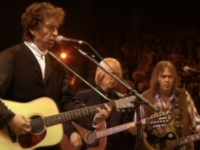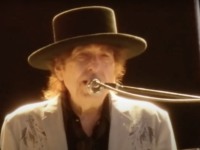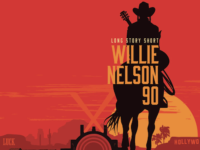It was 1992 and I was in my go-to record shop. I looked at the wall of new releases. I did a double-take. A Jimmy Buffet box set? A four-disc Jimmy Buffet box set, no less. Aren’t these supposed to be reserved for “major artists,” the ones with a huge number of hits and a complicated legacy? Eric Clapton had kick-started the box set phenomenon in 1988 with Crossroads. This pricey collection surprised the industry with its large sales. Other artists (and their record companies) quickly got involved with career retrospectives of their own.
I knew of Jimmy Buffett, of course. He had carved out an identifiable niche for himself of the happy-go-lucky beach bum with good times on his mind. But I also knew that Buffett charted few hits Of his five Top 40 entries, just one had climbed above #30 on the chart. That tune, of course, was “Margaritaville,” which went into the Top 10. But credit where it’s due: Buffett was able to create a loyal fan base and an economic empire from that tune.
I respected that. Clearly, this was a smart businessman. But I was still flummoxed by a four-disc set of his material. Would this stay in print very long, I wondered. It did, and has sales of quadruple platinum. What I didn’t realize was the depth of devotion that people held for the man. Buffett was the living dream of a huge number of Parrotheads, as his fans call themselves. Parrotheads wanted Buffett’s beach lifestyle, and they embraced the image that he projected so well.
During his career, Jimmy Buffett released around 30 albums, not counting live releases and compilations. That’s a lot of material. But Buffett usually played a similar set at each concert, focusing on what he called “the Big Nine.” This is not a criticism; the man knew what his fans wanted. Some of the songs in the Big Nine were “Cheeseburger in Paradise,” “Fins,” “He Went to Paris,” “Come Monday,” “Volcano,” and “Margaritaville” – the groundwork for a crowd-pleasing set, and good songs all.
These songs were what the Parrotheads came to hear, but the set list became a little too predictable for some. Seated on the lawn for a Buffett show at Alpine Valley, the woman next to us implored her husband to sit up and watch the concert. Through the baseball cap covering his face, the man snapped: “I’ll sit up when he does a song I haven’t seen him do before.” This guy may have been in the minority that night, but his point was valid.
There was a reason Buffett filled his set with familiar tunes. I have known some Parrotheads who have been to dozens of Buffett concerts. They gush about each show, similar as the concerts may be. The wife of a friend once confided to me, “There was one time he wasn’t so good. Buffett was singing some new stuff that nobody knew. But the next time I went he was great again; he played all the good songs.”
And there it was. This woman’s capsule review explained why Buffett was trapped by the persona he had so carefully created. I found this assessment interesting, in part, because of those 30 albums I discussed. I know a lot of them, and they each include a few really good songs. But they are songs that Buffett apparently couldn’t put into his live set. Or at least he had to be careful about what he included and what he removed from his core song list. As that friend pointed out, the one concert was a disappointment – and even the biggest fan will reconsider attending another show if let down by an artist more than once.
It seems as if Jimmy Buffett had a dual music career. His studio releases came like clockwork, and each included solid material, but these were songs that his audiences would never know by attending his concerts. Todd Rundgren once talked about the era when he put out records filled with sensitive ballads and then hit the road and prog-rocked the house with his Utopia band. This confused and irritated many in the audience. I had some New York City friends who were livid with Elton John. They loved his first album of gentle singer-songwriter numbers, but when they saw him in a 1970 concert he was shouting lyrics and kicking over the piano stool. A different mood than the album. Somehow, both Todd and Elton survived.
Buffett too survived – not only survived but thrived. And maybe Buffett didn’t care about performing the new material. The time I saw him I was hoping for some of his recent songs, but none came. This especially surprised me when he played several numbers that were not his. Van Morrison’s “Brown Eyed Girl” and Crosby Stills and Nash’s “Southern Cross” were two. Both were good, and helped maintain the mood of the concert, but it seemed that a couple of his own songs could have been successfully placed into these slots.
Jimmy Buffett knew what he had created – a specialized form of sand and sea and sailing music. He could be territorial about the genre he had staked out. On a David Letterman interview from the early 1980s, he complained that other (unnamed) artists were encroaching on his musical turf. He could appear strangely petty. The night I saw him, he openly mocked some former band members. Not every concert was a party. An Iowa friend of mine remembers the night he showed up late and then rushed through a short set. Everybody has an off night, of course.
Buffett clearly had mainly good nights – and a good life. He was ahead of the curve in many ways. Even before Sirius or XM radio was active, Buffett already had his own streaming internet station, Radio Margaritaville. It was later transferred to the SiriusXM satellite network intact in 2005. Many other artists would follow this lead, including Bruce Springsteen, whose own E Street Radio began in November of that year. Buffett’s interests did not stop with music. He was also a writer, and not only of songs. Earlier this year, my wife read his 2005 novel A Salty Piece of Land. She declared it “really good.” And this woman reads a lot of contemporary fiction. Buffett was clearly comfortable in a variety of harbors.
At the Alpine Valley concert, Buffett told the audience that somebody backstage asked him if this was his Farewell Tour. He laughed as he recounted the question but was also vehement when he told the crowd: “This is not a farewell tour.” And then almost shouting, he continued: “There will never BE a farewell tour.” And so there wasn’t – not in name, anyway. Buffett continued to give concerts as long as he could, and then he stopped. The Parrotheads will miss the concert experiences. The rest of the world will miss Jimmy Buffett’s attitude.
- Dickey Betts’ Star Rose as the Allman Brothers Band Grieved - April 19, 2024
- ‘Drums & Demons: The Tragic Journey of Jim Gordon,’ by Joel Selvin (2024): Books - March 12, 2024
- Robby Krieger – ‘Robby Krieger and the Soul Savages’ (2024) - February 26, 2024




